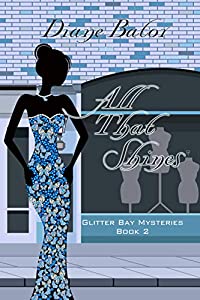How to open your novel with a bang

If you’re writing a novel, you want readers to be captivated the moment they open the book. Here, we learn about some of the best (and worst) ways to begin a story.
by Diane Bator
 As a writer, book coach, and editor, I love when I read a book that hooks me from the opening paragraph. Better yet, one that intrigues me from the first sentence and weaves such a great story that I can’t put it down.
As a writer, book coach, and editor, I love when I read a book that hooks me from the opening paragraph. Better yet, one that intrigues me from the first sentence and weaves such a great story that I can’t put it down.
Forget opening with backstory. That can—and should be—woven in through the rest of the chapter or more. Filling your entire first chapter with backstory is known as an “info dump,” and while it may be interesting, it won’t encourage your reader to continue. Feel free to add snippets of backstory when it compliments the rest of the scene.
Books & Buzz Magazine is where writing pros spill their secrets! Subscribe now for free
Please don’t open with a character waking up. If you feel that it works in your story, ask yourself what is it he/she/they are waking up to. A dog barking? Someone yelling and banging on the door? The spectre of their deceased grandfather hovering next to their bed? Whatever it is, your character needs to react appropriately. What would they do? Remember to show, not tell!
Weather is a highly overrated way of starting a book, unless it’s unbearably hot or there’s a storm raging and your character has to get from Point A to Point B while juggling a wedding cake. Opening a novel with a weather forecast of not a cloud in the sky and the perfect day for a funeral might work.
Another pet peeve is when authors open with a party or funeral scene and feel the need to introduce every single character in the first ten pages. Keep it simple and don’t overwhelm your reader. The fewer names they’re confronted with on page one, the more likely they’ll be to continue turning the pages.
If the hot-water tank is broken, the coffee pot overflowed, and your character dropped a dozen eggs on the floor, your reader instantly gets it’s a bad day.
Starting your book by setting the scene and showing a glimpse of the protagonist’s world can be interesting, but one chapter is good. Drawing out the daily life of your protagonist for seven chapters when a murder should’ve happened by the end of Chapter 3 will lose readers of the genre. Skip the laundry list of “They got up, brushed their teeth, showered and dressed, then had two eggs and toast before kissing their significant other and strolling to their car to go to work.” Showing us every detail of their lives for several chapters isn’t going to keep readers hooked.
It’s boring. Readers pick up your book for the meat and potatoes. For a good story.
Keep in mind you’re writing a novel, not making a movie. Screenwriting is far different and gives different information than a book. With screenwriting, setting the scene is essential from the start. In a novel, you can build the setting as you follow your point-of-view character or protagonist through their day. Something simple like letting the reader know it’s a small town, or New York City, then adding businesses and things around them is great. It just needs to be woven into the story and not dumped in one chunk—unless it has a purpose and sets up what’s about to happen.
Creating empathy for your protagonist is one way to start. The hot-water tank is broken, the coffee pot overflowed and went everywhere, and they dropped the entire dozen eggs on the floor. Your reader instantly gets that the character is about to have a really bad day and will likely want to find out more. Add in that the character stops to buy a lottery ticket and ends up in the middle of a robbery, and you’re off to an interesting start.
Some people will tell you not to start with dialogue, but sometimes a simple question or sentence can be a great hook. That opening line can create a conflict or create a moment that shocks the protagonist and the reader. From there, readers discover more about your character and their environment. Without the info dump, please.
However you decide to start your story, make sure it catches and keeps the attention of your editor and your readers as you share your book.
Did I say editor? Yup!
Having Grandma Fay read your work is great, but spending the money on a good editor will make your book stand out that much more and make sure those great hooks you craft actually work.
Happy writing!
Diane Bator is a mom of three, book coach, and author of over a dozen mystery novels and many works-in-progress. She has also hosted the Escape With a Writer blog to promote fellow authors, and is a member of Sisters in Crime Toronto, the Writers Union of Canada, and a board member of Crime Writers of Canada. When she’s not writing and coaching authors, she works for a professional theater. No surprise she’s written her first play, which may lead to more.
You can visit Diane at her website and find her books through her publisher, Books We Love.